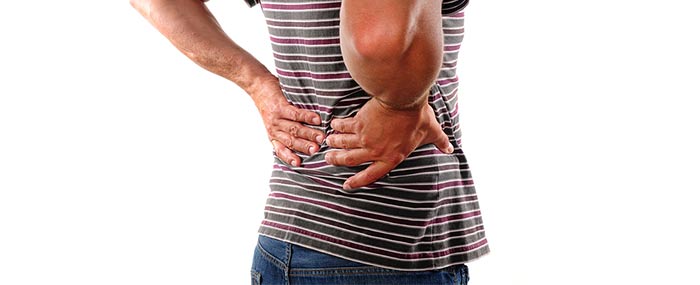Have you ever had an ache that’s barely noticeable, until you start to think about it?
Then the ache intensified and suddenly, the pain seems unbearable.
New studies have found that while pain isn’t “just all in your head,” the brain does have ways of influencing our perception of pain.

In a new paper out of Biology Psychiatry, Chantal Berna, MD led a group of researchers from the University of Oxford, UK who looked at the effects that depression had on the perception of pain.
20 healthy volunteers listened to depressing music and were bombarded with negative thoughts.
Researchers then used functional magnetic resonance imaging (MRI) to see how their brains would respond to a heat stimulus.
Following the depressed mood induction, brain responses to the heat stimulus resulted in increased perception of pain.
The MRI showed increased activity in the prefrontal areas, the anterior cingulate cortex, and the hippocampus.
These results were marked, especially when compared with significantly less activation when the volunteers were in a neutral frame of mind.
The depressed individuals who indicated the largest increase in pain perception also showed the greatest activation in the inferior frontal gyrus and the amygdala.
As you know, the amygdala is involved in the storing of emotional memories, thus linking emotional regulation and pain enhancement.
The more we know about the workings of the brain, the more we are able to tailor treatments.
If this interests you, check out our Mind/Body courses or our Brain courses.
Please use the comment board below to let us know what you think about the mind-body pain connection. Based on your own work, do you think that depression and pain can be connected?
I really like your thoughts. Have a great day ahead!!!
A great post sees after ages & appreciated when I read this kind & helpful word written in this blog.
With thousands off trending events and holidays in your vicinity, you can save a ton on marketing by channeling the emotions of consumers with bulk sms usa. Let your audience know of the upcoming offers or flash sales leading cyber Monday, black Friday, and Christmas using simple yet effect text messages.
With thousands off trending events and holidays in your vicinity, you can save a ton on marketing by channeling the emotions of consumers with bulk sms usa. Let your audience know of the upcoming offers or flash sales leading cyber Monday, black Friday, and Christmas using simple yet effect text messages.
Depression or any kind of Pain pointing you has unhealthy body but question is what healthy body is and how to make healthy body?
Maybe you could change the page subject Pain, Brain and Depression: It isn’t all in your head…or in your body | Ruth Buczynski, PhD to something more better for your subject you make. I loved the blog post still.
One of my clients who describes himself as a mechanical “fix-it” nut related that he noticed
that when he injures himself (as he often does) and is involved in doing he really enjoys, the pain is mainly overlooked. When not engaged in a pleasant job the injury receives more of a focus and is noticabley more painful.
In our hospital’s in-house TV channel, we run a video called “Pacific Lights” that has shown to reduce pain and lower blood pressure. The video has Pacific coast scenery with calming music in the background. Nurses love it, and patients and families do also. This confirms that pain can be affected somewhat without drugs.
In our hospital’s in-house TV channel, we run a video called “Pacific Lights” that has shown to reduce pain and lower blood pressure. The video has pacific coase scenery with calming music in the background. Nurses love it, and patients and families do also. This confirms that pain can be affected somewhat with out drugs.